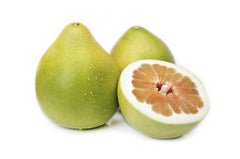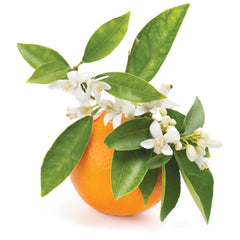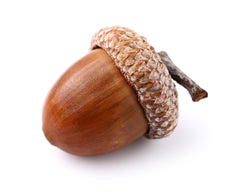What Does Persimmon Smell Like?
Black Friday Fragrance Deals
Click For Affordable Inspired Perfume Alternatives

Embark on a fragrant journey to orchards adorned with persimmon trees and discover the captivating aroma of persimmons. Native to East Asia, persimmons boast a unique fragrance that captures the essence of autumnal orchards. Join us as we explore the question: What does persimmon smell like?
What Does Persimmon Smell Like?
The fragrance of persimmon is a symphony of sweet and fruity notes with a hint of warm spiciness. Imagine the rich, honeyed sweetness of ripe fruits, intertwined with a touch of autumnal spice. Persimmon's scent is a celebration of the fall season, offering a warm and comforting olfactory experience.
Persimmon's Sweet Symphony
Enter the world of persimmons, where the fragrance is a harmonious blend of sweetness and subtle spiciness. Join me on a fragrant journey to discover the captivating aroma that defines the essence of persimmon.
Fruity Elegance: A Harvest Bounty
As you approach persimmon, the first olfactory impression is a burst of fruity elegance, reminiscent of a bountiful harvest. Picture the sweetness of honey and the succulence of ripe fruits seamlessly combined. Persimmon's fragrance is a celebration of autumnal abundance, instantly transporting you to an orchard filled with the richness of nature's harvest.
Warm Spice: Autumnal Embrace
The scent of persimmon is accompanied by a warm spiciness that adds depth to its fragrance profile. This autumnal embrace evokes images of cozy evenings by the fireplace, with hints of cinnamon and nutmeg dancing in the air. Persimmon's aroma is a testament to the comforting and inviting qualities of the fall season.
Subtle Earthiness: Orchard Ambiance
While predominantly sweet, there's a subtle undercurrent of earthiness in persimmon's scent. This delicate touch of orchard ambiance adds a grounding quality to the fragrance, creating a well-rounded composition that is both comforting and invigorating. Persimmon's aroma is a delightful interplay of sweetness and earthiness, reminiscent of a stroll through a sun-dappled orchard.
Juicy Ripeness: Essence of Autumnal Fruits
Delve deeper into the scent, and you may notice a juicy ripeness that characterizes persimmon's fragrance. It's as if the aroma carries the essence of freshly harvested autumnal fruits, creating a mouthwatering and comforting olfactory experience.
Persimmon's Autumnal Symphony
Hence, persimmon's fragrance is an autumnal symphony of fruity elegance, warm spice, subtle earthiness, and juicy ripeness. It stands as a testament to the rich and comforting qualities of this fall fruit, offering a sensory experience that is both heartwarming and delightful. Persimmon, with its comforting and complex aroma, invites us to savor the autumnal notes found within its essence, a fragrant journey that unfolds with every inviting whiff.
Factors Influencing the Scent of Persimmon Fragrance Oil
Persimmon fragrance oil is a meticulously crafted composition designed to capture the sweet and fruity aroma of the Diospyros kaki, commonly known as persimmon. The formulation of this fragrance involves a thoughtful combination of aromatic compounds. Here are several factors that contribute to the warm and comforting scent of Persimmon fragrance oil:
Fragrance Composition: Persimmon fragrance oil is a carefully blended mixture of various aromatic compounds, chosen to replicate the characteristic scent of persimmon. This composition may include both synthetic and natural ingredients to achieve the desired olfactory profile.
Fruity Essence: At the heart of the fragrance lies the essence of persimmon. Notes of sweet fruits, with a perfect balance of honeyed richness, are intricately blended to mirror the comforting and inviting aroma of persimmon.
Synthetic vs. Natural Components: Persimmon fragrance oil often combines both synthetic and natural ingredients. Perfumers make choices to strike a balance between authenticity, cost considerations, and sustainability in the selection of these components.
Extraction Method: The method used to create Persimmon fragrance oil, whether through distillation or extraction, plays a crucial role in defining the aromatic profile. Specific extraction methods contribute to the faithful recreation of the sweet and fruity scent.
Additional Spicy and Woody Notes in the Blend: The fragrance may incorporate additional spicy elements or subtle woody notes to enhance complexity. These complementary notes contribute to the overall warmth of the scent, capturing the essence of persimmon.
Quality of Ingredients: The quality of raw materials, including the source of essential components, directly influences the richness and authenticity of the persimmon scent in the fragrance oil.
Perfumer's Artistry: The expertise and creativity of the perfumer or fragrance creator are crucial. Perfumers leverage their skills to balance different components, creating a distinctive and delightful persimmon fragrance.
Regulatory Compliance: Adherence to regulatory standards and restrictions on certain fragrance ingredients is crucial. Compliance with safety guidelines requires careful consideration of ingredient choices to ensure the fragrance is safe for use.
Usage in Products: Persimmon fragrance oil can be incorporated into various products, including perfumes, candles, room sprays, and bath products. The interaction with other ingredients in specific product formulations can influence how the persimmon scent is perceived.
Product Type and Concentration: The concentration of Persimmon fragrance oil in a product affects the strength and longevity of the scent. Higher concentrations may be suitable for perfumes, while lower concentrations work well for candles, soaps, or room sprays.
Storage Conditions: Proper storage conditions for Persimmon fragrance oil, both before and after formulation, are essential to maintain its stability and scent. Storing it in a cool, dark environment helps preserve the warmth of the fragrance.
Consumer Preferences and Trends: Formulations of Persimmon fragrance may adapt to changing consumer preferences and market trends. The popularity of comforting scents or unique blends may influence product formulations.
Artisanal vs. Commercial Production: Differences between artisanal and commercial production of Persimmon fragrance oil may impact ingredient sourcing, formulation, and overall quality. Artisanal methods may emphasize craftsmanship and unique blends.
Post-Formulation Processing: Additional processes, such as aging or filtering after the formulation of the fragrance oil, may influence the final scent and contribute to the desired comforting characteristics.
Exploring different formulations of Persimmon fragrance oil allows consumers to experience a range of sweet and fruity scents reminiscent of the inviting persimmon fruit. Individual preferences play a significant role in selecting the perfect Persimmon fragrance for various applications.
What to Look for When Choosing Persimmon Fragrance Oil
Selecting a persimmon fragrance oil allows you to enjoy the sweet and fruity aroma of persimmons, a fall favorite. Whether used in candles, diffusers, or personal care products, consider these factors to ensure you choose a high-quality and authentic persimmon fragrance oil:
Sweet Fruity Authenticity: Seek a persimmon fragrance oil that authentically captures the sweet, fruity, and honeyed scent of real persimmons. Look for a fragrance that embodies the unique notes characteristic of quality persimmons.
Natural vs. Synthetic: Determine whether the fragrance oil is derived from natural sources or is synthetically produced. Natural persimmon oils can provide a more nuanced and realistic scent, closely resembling the aroma of actual persimmons.
Blend Ingredients: Check the blend of ingredients in the fragrance oil. A well-crafted combination of natural and synthetic components can contribute to a balanced and long-lasting persimmon fragrance.
Intensity Level: Consider the intensity level of the persimmon fragrance. Some may prefer a subtle and comforting scent, while others may desire a more pronounced and inviting aroma. Look for a fragrance that aligns with your desired level of intensity.
Versatility: Choose a fragrance oil that is versatile and suitable for various applications. Whether used in candles, soaps, lotions, or diffusers, versatility allows you to enjoy the sweet and fruity scent in different settings.
Packaging: Assess the packaging of the fragrance oil. Opt for a bottle that is dark or opaque to protect the oil from light exposure, preserving its warmth and preventing deterioration over time.
No Residue or Discoloration: Ensure that the persimmon fragrance oil leaves no residue or discoloration when incorporated into different products. A high-quality oil should seamlessly integrate into various mediums without causing unwanted effects.
Manufacturer Reputation: Research the reputation of the manufacturer or brand. Choose well-established brands with positive reviews, as they are more likely to produce reliable and high-quality fragrance oils.
Testing Options: Look for fragrance oils that offer testing options or sample sizes. This allows you to experience the scent firsthand before committing to a larger quantity, ensuring it aligns with your preferences.
Ethical and Sustainable Practices: Consider the manufacturer's commitment to ethical and sustainable practices. Brands that prioritize responsible sourcing and environmentally friendly production contribute to a more conscientious choice.
By considering these factors, you'll be better equipped to choose a persimmon fragrance oil that not only aligns with your preferences but also ensures a high-quality and comforting olfactory experience in your chosen applications.
Where to Find Reputable Persimmon Fragrance Oils
Specialty Candle and Soap Supply Stores: Explore specialty stores dedicated to candle-making and soap supplies, as they often carry a variety of fragrance oils, including unique scents like persimmon. These stores may offer options suitable for crafting candles, soaps, and other scented products.
Online Fragrance Oil Retailers: Browse reputable online platforms specializing in fragrance oils. Websites and retailers dedicated to aromatherapy, candle making, or DIY crafting may have an extensive selection of persimmon fragrance oils. Check product descriptions and customer reviews for authenticity and quality.
Artisanal or Handmade Markets: Attend artisanal markets or craft fairs where independent sellers showcase handmade products. Artisan vendors may create unique and carefully crafted persimmon fragrance oils, providing an opportunity to explore distinct options.
Local Essential Oil or Perfume Shops: Specialty shops focusing on essential oils or perfumes may carry persimmon fragrance oils. These stores often prioritize high-quality scents and may offer a range of unique and fruity aromas.
Online Marketplaces: Platforms like Etsy or other online marketplaces featuring handmade or artisanal products can be sources for persimmon fragrance oils. Look for sellers with positive reviews and detailed information about their products.
Aromatherapy Stores: Aromatherapy stores often carry a variety of fragrance oils for different applications. Inquire about the availability of persimmon scents to add a sweet and fruity aroma to your living space.
Local Farmers' Markets or Herbal Shops: Check with local farmers' markets or herbal shops that specialize in natural products. Some of these establishments may offer fragrance oils with botanical scents, including persimmon.
Specialty Perfume Retailers: Explore specialty perfume shops that focus on unique and exotic fragrances. These stores may carry persimmon fragrance oils known for their distinctive and inviting fruity notes.
Word of Mouth: Seek recommendations from friends, family, or members of fragrance communities for trusted sources of persimmon fragrance oils. Personal experiences and suggestions can guide you to reputable suppliers known for quality and authenticity.
Check Ingredients and Descriptions: Before making a purchase, carefully read product descriptions and check ingredient lists for persimmon fragrance oils. Authentic and reputable sellers provide clear information about the composition and intended use of their products.
Note: Persimmon fragrance oils can bring a sweet and fruity note to your DIY projects. Ensure that the fragrance oil you choose aligns with your intended use, whether it's for candles, soaps, diffusers, or other creative endeavors. Follow safety guidelines provided by the manufacturer for proper usage.
20 Questions and Answers about Persimmon:
-
Q: Is persimmon used in perfumery? A: Yes, persimmon is sometimes used in perfumery to impart a fruity and sweet note to fragrances.
-
Q: What type of fragrance does persimmon add to perfumes? A: Persimmon adds a sweet, fruity, and sometimes slightly spicy note to perfumes.
-
Q: Are there different varieties of persimmon used in perfumery? A: Perfumers may use various varieties of persimmon, each contributing its unique scent profile to a fragrance.
-
Q: Does persimmon blend well with other fragrance notes? A: Yes, persimmon often blends well with floral, citrus, and woody notes in perfumery.
-
Q: Is persimmon more commonly used in men's or women's fragrances? A: Persimmon can be found in both men's and women's fragrances, as its versatile scent profile complements various compositions.
-
Q: Does the scent of persimmon change over time in a perfume? A: The scent of persimmon may evolve over time in a perfume due to its interaction with other ingredients and the skin's natural oils.
-
Q: Are there any perfumes famous for using persimmon as a key note? A: Specific perfumes may highlight persimmon as a key note, but formulations can vary across different brands and releases.
-
Q: Can persimmon be a dominant note in a perfume or is it usually a subtle accent? A: Persimmon can play either a dominant or subtle role in a perfume, depending on the formulation and the perfumer's intent.
-
Q: How is persimmon extract incorporated into perfumes? A: Perfumers may use persimmon extract, essence, or synthetic compounds to capture the desired scent for use in perfumes.
-
Q: Does the geographical origin of persimmons affect their scent in perfumery? A: The geographical origin of persimmons can influence their scent, as environmental factors can impact the aroma of the fruit.
-
Q: Can persimmon be part of a fragrance's top, middle, or base notes? A: Persimmon can be used in various parts of a fragrance, including top, middle, or base notes, depending on the overall composition.
-
Q: Are there any potential allergic reactions to persimmon in perfumes? A: While allergies can vary, persimmon is generally well-tolerated, but it's essential for individuals with known allergies to be cautious.
-
Q: Does persimmon have any symbolic or cultural significance in perfumery? A: Persimmon may be chosen for its symbolic or cultural significance in certain perfumes, as different scents can evoke specific emotions or memories.
-
Q: Is persimmon used in niche or mainstream perfumery? A: Persimmon can be found in both niche and mainstream perfumery, as it appeals to a wide range of fragrance enthusiasts.
-
Q: Can persimmon be part of both summer and winter fragrances? A: Yes, persimmon's versatile and fruity profile makes it suitable for both summer and winter fragrances.
-
Q: How does persimmon interact with musky notes in perfumery? A: Persimmon can add a sweet and fruity contrast to musky notes, creating a balanced and harmonious fragrance.
-
Q: Are there any famous perfumers known for incorporating persimmon in their creations? A: Perfumers often use a variety of ingredients, and while some may use persimmon, it might not be the sole focus of their creations.
-
Q: Can persimmon be found in natural or synthetic forms in perfumery? A: Both natural extracts and synthetic compounds can be used to capture the scent of persimmon in perfumery.
-
Q: Does persimmon have any aromatherapy benefits in perfumery? A: While not a traditional aromatherapy ingredient, persimmon's pleasant scent can contribute to a positive sensory experience in fragrances.
-
Q: How long does the scent of persimmon typically last in a perfume? A: The longevity of persimmon's scent in a perfume depends on various factors, including the formulation, concentration, and individual skin chemistry. Generally, it contributes to the overall fragrance experience.
Buy Perfumes - Best Online Retailers
Click For Affordable Inspired Perfume Alternatives
Click For The Best Niche Perfumes & Decants
Pheromone Perfumes - Confidence, Attraction & Appeal - Click For More
Home Fragrances & Candle Warmers - Click To Scent Up Your Spaces Today!



